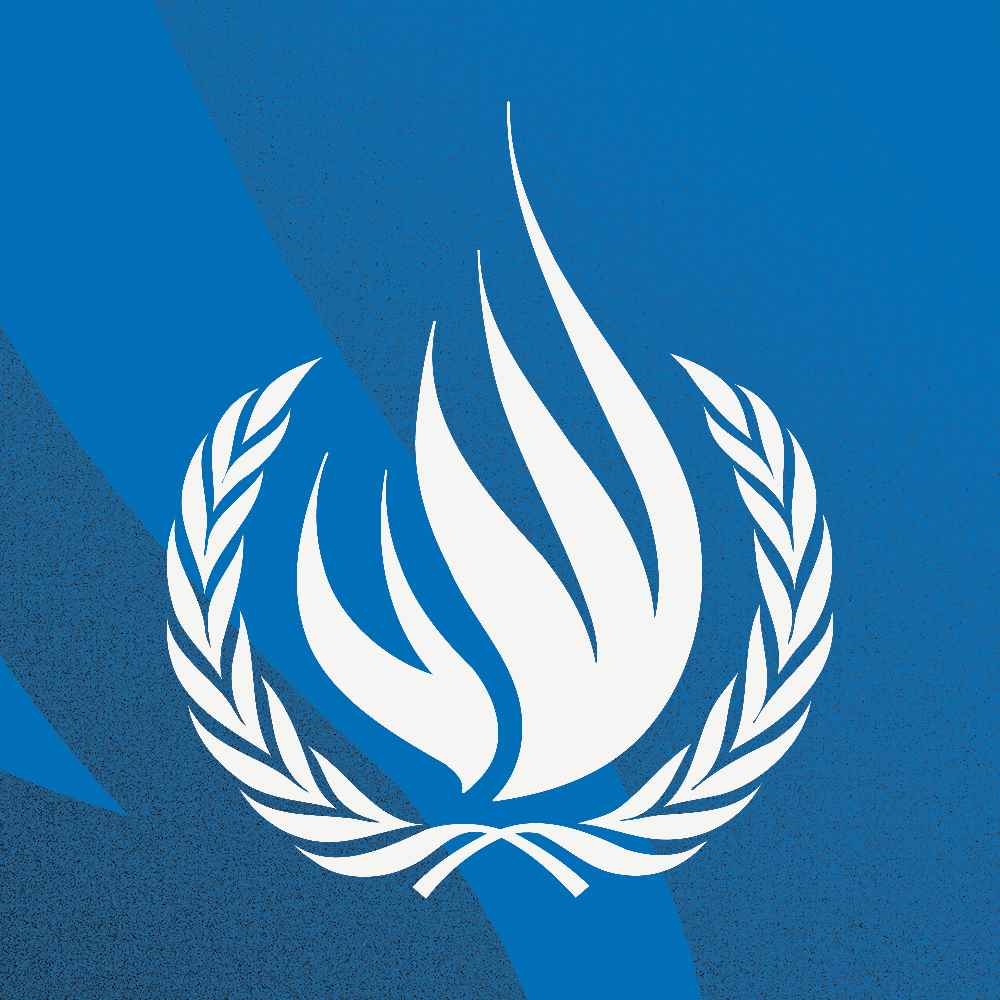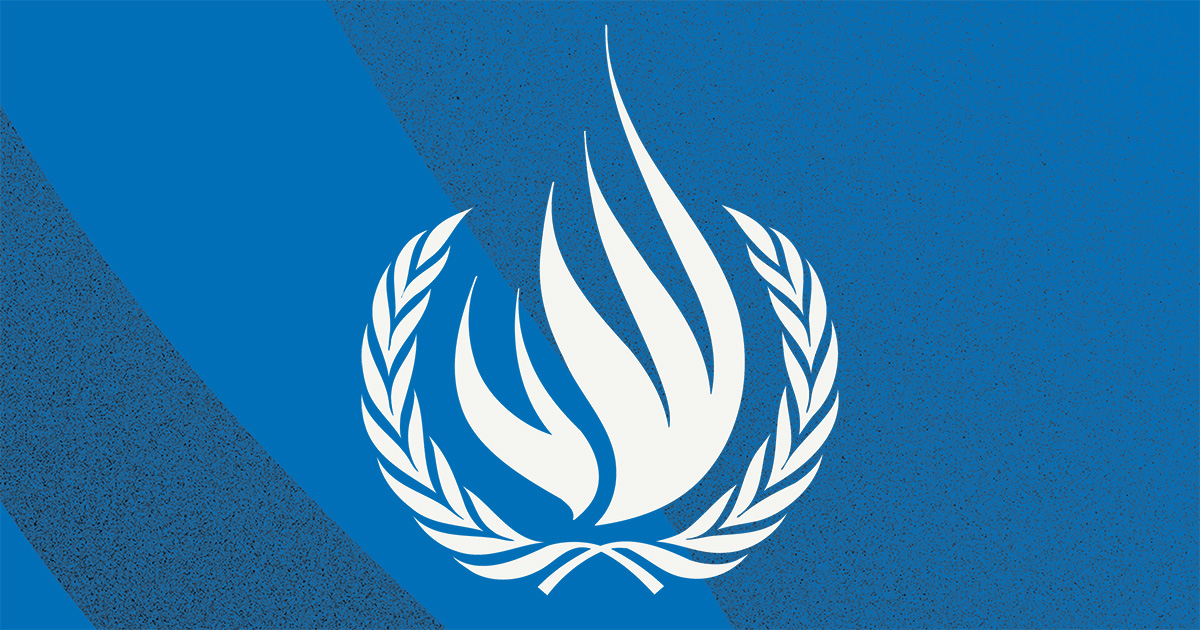
The Committee on the Rights of the Child this afternoon held its fourteenth informal meeting with States, discussing the Committee’s draft general comment on children’s rights and the environment, child participation and the simplified reporting procedure, among other topics.
Mikiko Otani, Chair of the Committee, said the Committee held two sessions in May and September in 2022, both for five weeks, to make up the loss of meeting time during the January session due to the COVID-19 pandemic. It had reviewed 20 reports of States parties, of which five lists of issues were adopted. The Committee was continuing its work on a new general comment no. 26 on children’s rights and the environment, with a special focus on climate change.
Also providing opening statements were the following Committee Experts: Velina Todorova, Ann Skelton, Peter Jaffe, Sopio Kiladze and Luis Pedernera Reyna. Speaking in the discussion were Clarence Nelson, Bragi Gudbrandsson, Luis Pedernera Reyna, Mikiko Otani, Hynd Ayoubi Idrissi, Velina Todorova, and Benyam Mezmur.
Georgia, New Zealand, Mexico, Russia, Mali and Egypt participated in the discussion.
The Committee will next meet in public on Friday, 3 February at 5 p.m. to close its ninety-second session, during which it reviewed the reports of Azerbaijan, Bolivia, Ireland, Mauritius, New Zealand, Oman and Sweden.
Opening Statements by Committee Experts
MIKIKO OTANI, Chair of the Committee, said the Committee held two sessions in May and September in 2022, both for five weeks, to make up the loss of meeting time during the January session due to the COVID-19 pandemic. It had reviewed 20 reports of States parties, of which five lists of issues were adopted. The Committee was continuing its work on a new general comment no. 26 on children’s rights and the environment, with a special focus on climate change. Concerning days of general discussion, the Committee adopted its decision no. 16 in September 2022 to integrate days of general discussion into the process of developing general comments. The Committee also continued its work under the Optional Protocol on a communication procedure, with regard to individual cases and inquiries. The Committee actively collaborated with other United Nations human rights treaty bodies in joint activities, including the joint statements with the Committee on the Rights of Persons with Disabilities and with the Committee on Enforced Disappearances. The Committee had decided to shift to the opt-out simplified reporting procedure in February 2022, which would start from 1 January 2024.
VELINA TODOROVA, Committee Expert, said the Committee was working on a general comment on children’s rights and the environment, with a focus on climate change. The drafting process involved a broad stakeholder engagement to ensure the quality of the general comment and to maximise its impact. Numerous consultations, meetings and webinars were held by Committee members in between the sessions last year. Children were involved in various ways, including through meeting several times with the Child Advisory Team. Concerns raised by the young advisors included difficulties in reaching underprivileged children, and the lack of awareness children had of their individual rights. The draft general comment was uploaded to the Committee’s webpage in November 2022 for public consultation and to collect comments, with the aim of launching it in September.
ANN SKELTON, Committee Expert, reporting on the Optional Protocol on a communication procedure, said it had come into operation in 2014. New Zealand had become the fiftieth State to ratify the Optional Protocol in 2022. It total, the Committee had registered 210 cases, and 116 decisions had been adopted; 97 cases were pending, and 38 cases were registered last year, which represented an increase year on year. The Committee could not deal with the cases as efficiently as it would like, due to lack of staff, and had called for extra funding. The Committee was encouraging States to ratify to the Optional Protocol before 2024.
PETER JAFFE, Committee Expert, said the Committee was pleased to report on a new feature to enhance its visibility in the digital environment, and had set up a Twitter handle for the Committee (UNChildrights1) one year ago. The response to the Twitter outreach had been positive, and the handle had seen a rapid growth in followers. It was approaching 4,000 followers and experiencing exponential growth. Each month the tweets produced 60,000 impressions.
SOPIO KILADZE, Committee Expert, said the Committee had taken several concrete steps to involve parliaments in better implementation of the rights of the child. Some of these actions included the adoption of a joint statement, and the joint event of Committee and the Inter-Parliamentary Union.
LUIS PEDERNERA REYNA, Committee Expert, said the Committee would be picking up the simplified reporting procedure with the opt-out on children in armed conflict and on the sale of children, child prostitution and child pornography. The simplified reporting procedure would be applied in January 2024. The Secretariat would send further information for States to take action. The Committee had been working to change the dialogue structure and would produce a draft report on this, with the goal to improve the quality of dialogue with Member States.
Discussion
Georgia asked what States could do to assist the Committee in its important work and to ensure achieving its goals?
New Zealand asked for further information regarding work in Samoa and the Pacific region? There was some overlap between the work of the different Committees; was there work underway to connect the Committees and the work they did together?
Mexico asked for more information on the aspects of interactive dialogue which would require adaptation? Mexico would also be interested in hearing the comments of children who took part in discussions on the general comment. What were the main difficulties to overcome to ensure the Committee had access to these children?
Russia said the general observations were the opinions of the experts of the Committee and should not impose additional regulations or protocols on States. The issue of climate change was sensitive and required expert knowledge, and Russia hoped that experts on the environment and climate change were also consulted, and that Committee Experts would not go beyond their mandate. On consultations with children, how did these take place? There must be no pressure or negative influence exercised on the children. How were the best interests of the child protected? The attribution of time during country reviews was also an important aspect which the Committee should focus on, and the way in which questions were worded. Sometimes States were not given enough time to respond to the questions.
Responses by Committee Experts
CLARENCE NELSON, Committee Expert, said the areas of corporal punishment, child justice, sexual violence and abuse, and climate change had been identified as key issues in the Committee’s eighty-fourth extraordinary session of Samoa. The Committee planned to send a taskforce to the region to hold discussions with relevant stakeholders, including children, on how to tackle these issues. It was hoped this would occur during 2023.
BRAGI GUDBRANDSSON, Committee Expert, said the Child Advisory Team consisting of 13 children from all regions of the world had been formed one year ago, which started the process of consultations for the general comment on a regional and global scale. A questionnaire was disseminated which saw responses from over 7,000 children on climate issues. From conversations with the Child Advisory Team, the Committee had learned how the climate crisis impacted children in different parts of the world, and how they perceived the crisis. The participation process in the drafting of the general comment had been a great success.
LUIS PEDERNERA Reyna, Committee Expert, said one of the Committee’s main concerns was improving the quality of dialogue between Committee Experts and States. The Committee had identified some issues, including avoiding the repetition of questions. During the next session, the Committee hoped to have a dialogue with States to bounce ideas on the renewed ways of work.
On how States could assist the Committee, JOSÉ ANGEL RODRÍGUEZ REYES, Committee Expert, said the Committee’s recommendations could be incorporated into public policy that States designed when it came to protecting adolescents and children. The ideal approach would be that the States took into account Committee recommendations when designing their public policies. The Committee would welcome invitations for further dialogue from States regarding their recommendations, and how these could be implemented. The dialogue should not end once the session ended, but should be a continuous process.
MIKIKO OTANI, Chair of the Committee, said the backlogs were a concern; 70 reports were currently awaiting review. For the Committee to fulfil its mandate, sufficient human and financial resources needed to be allocated to the Committee. Ms. Otani appealed to States to support the Committee’s work. It was important for the Committee to hear the views of States and Ms. Otani urged States to submit their comments on the general comment. Regarding overlap of the various Committees, work was being done to harmonise the work of the treaty bodies.
HYND AYOUBI IDRISSI, Committee Expert, said the Committee was aware of the time shortages, and much work was being done to review the structure of the dialogue, in order to provide more time, and provide for better follow up. Children’s participation should be reflected and duly considered.
MIKIKO OTANI, Chair of the Committee, said the Committee had adopted some documents including the working method on child participation, in country reviews and the day of general discussion. All documents were available on the Committee’s webpage.
Statement from a State
Mali said that given the cross-cutting nature of climate change, how would the Committee consider this? Was the general comment too restrictive given the scope of the issue?
Another speaker asked if the simplified reporting procedure would be optional? Could a timeline on the draft general comment 26 be provided?
Responses by Committee Experts
VELINA TODOROVA, Committee Expert, said the Committee would work on the draft general comment after receiving all comments from States; the deadline for this was 15 February. The final version of the general comment would be adopted in the May session of the Committee. Climate change was viewed from the perspective of children’s rights.
MIKIKO OTANI, Chair of the Committee, said the simplified reporting procedure would be the standard procedure from the first of January 2024, but States parties could opt-out if they wished to do so, and be reviewed under the current reporting procedure.
Statement from a State
Egypt commended the work of the Committee and its commitment to overcoming the challenges faced during the pandemic. Egypt had held several events on the side-lines of COP27, of which it was the host country. Egypt urged the Committee to avoid overlaps of its schedule with the Human Rights Council.
Responses of Committee Experts
MIKIKO OTANI, Chair of the Committee, said there had been a pavilion for youth and children at COP27, which was a great example of child participation. Overlapping the schedule among the treaty bodies would be taken into consideration when the eight-year predictable schedule was being designed. The overlap with the Council was challenging; there was overlap with most Committees and the Council.
BENYAM MEZMUR, Committee Expert, said the Committee was not just starting to work on climate change now in the context of the general comment. In 2016, a day of general discussion was held, which benefitted from input from children and States. The Committee could confirm that solid expertise from scientists was provided on climate change, and they were consulting relevant stakeholders and experts. Significant progress had been made on overlap; the Committee was the only Committee with two joint sessions with other committees. It was a work in progress; the Committee was happy to hear from States where the overlaps occurred and how these could be addressed.
MIKIKO OTANI, Chair of the Committee, said the Committee was interested in joint work with other treaty bodies, and would organise an opportunity to discuss substantive issues of common interest in person.
Link: https://www.ungeneva.org/en/news-media/meeting-summary/2023/02/committee-rights-child-holds-fourteenth-informal-meeting-states









